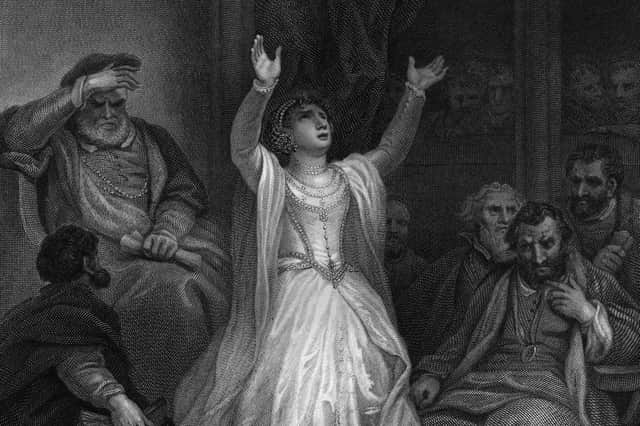Are men really thinking about the Roman Empire? Delving into the social media phenomenon
How often do you think about the Roman Empire?
That’s the question being asked to men across the world following a video by Saskia Cort. The influencer was discussing her dating experiences with men when one woman replied that her boyfriend often thought about the Roman Empire.
The sentiment was then echoed by a number of others, sparking an online phenomenon and resulting in women everywhere turning to the men in their lives to ask: how often do you think about the Roman Empire?
Advertisement
Hide AdUpon asking my partner – someone who I fully expected to deny ever thinking about the Roman empire – he even agreed that he thinks about it 'maybe twice a month', which is twice a month more than I would have anticipated. Personally, I don’t remember ever really thinking about the Roman Empire, except for if it was referenced in a book or piece of media. And then, like others, I spiralled.
Why do men think about the Roman empire? Is it all men? What is it about the Roman empire specifically and why do women not seem to share this fascination?
Why are men thinking about the Roman Empire?
Well Rome wasn’t built in a day, as they say. Some men will be thinking about inventions such as aqueducts, concrete, the Julian calendar and roads.
For others it’s less about the modern amenities we now have as a result of Rome, instead it’s about gladiators and Colosseum fighting.
Or it could come down to the rich history of the Roman Empire; almost a thousand years' worth.
Then there’s the TV shows, films, podcasts and novels aplenty on the Roman Empire – from historical to fictional.


Advertisement
Hide AdNot to mention how Rome shifted from a kingdom to a republic, and then from a republic to an empire after power shifted to a centralised imperial authority, with the emperor holding the most power.
With so many factors I can almost understand why it would occupy the minds of men. But still…
Do women think about the Roman Empire?
Advertisement
Hide AdI’m sure some women do think about the Roman Empire but as a general rule of thumb with this online phenomenon, for the most part it seems that women don’t think about the Roman Empire.
Is there a reason why women don’t think about the Roman Empire the same way men do?
It could be related to the social status of women during the Roman Empire, as women didn’t hold an equal position in society to men.
It was an extremely patriarchal society with the paterfamilias holding absolute power over his household and children. Wives were often much younger than their husbands due to cultural values at the time.


However women were be able to gain “independence” of a sort due to child mortality rates. Around 25% of babies born did not make it to age 10 and women who gave birth to three live babies – four for former slaves – would be recognised as legally independent.
In an opinion piece for CNN, journalist and historian David M. Perry said: "When it comes to the Roman Empire, there’s a gender bias here, and also a racial one. Lots of men in particular think Rome is cool, though it’s mostly just vibes combining mythic ideas around ancient Greece and Rome…”
What is the female equivalent of the Roman Empire?
Since women began to ask the men in their lives about the Roman Empire, the question of a female equivalent was raised.
Advertisement
Hide AdThere are a number of schools of thought on the matter with some of the more popular suggestions including:
- the six wives of Henry VIII
- the Titanic
- Princess Diana
- the Romanovs
- Greek Mythology
- the Salem Witch Trials


The mention of Greek Mythology feels like a worthy addition, almost Roman Empire adjacent with the enduring tales of figures such as Icarus, Persephone and Medusa, as do the six wives of Henry VIII - especially with the existence of Six the Musical.
Advertisement
Hide AdOther additions to the list of female equivalents include being murdered or kidnapped, or other people being murdered or kidnapped. It makes a certain amount of sense with the popularity of true crime.
Comments
Want to join the conversation? Please or to comment on this article.
